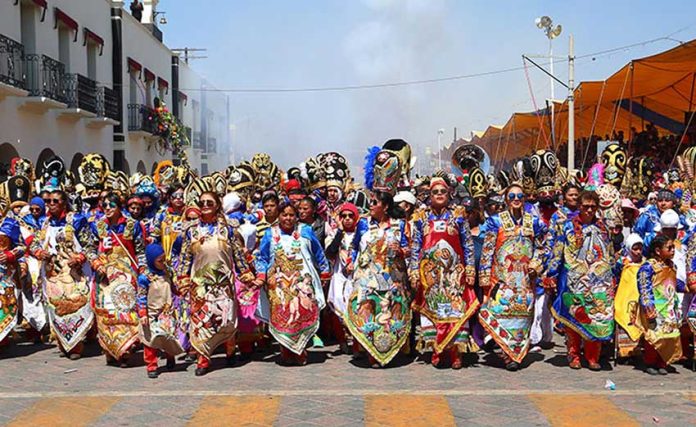A 151-year-old carnival in Huejotzingo, Puebla, is not only about dancing and drinking, says the mayor.
Angélica Alvarado said the carnival, held continuously for 151 years, has deep cultural roots.
“[The carnival] includes many ritual and symbolic elements that make it unique. It is one of the few [traditional] cultural, dance and musical gatherings that constitutes a grand theater of the masses.”
The mayor explained that the event includes representations of the famous 5 de Mayo battle in Puebla, complete with traditional dress, as well as a reenactment of the wedding of Calixto, the region’s first Catholic wedding of an indigenous person, according to the written account of Friar Toribio de Benavente Motlinía.
Local children participate in the carnival from a young age and, according to Alvarado, more of the region’s young are represented every year.
The Huejotzingo carnival is considered the largest Mesoamerican ritual gathering still alive today in Mexico and principally celebrates the region’s indigenous ancestry.
Huejotzingo was founded in 1173 by Nahua peoples among other communities established on the slopes of the Iztaccíhuatl volcano. Today’s carnival keeps alive traditions passed from generation to generation from the town’s original inhabitants, says Alvarado.
Many say the carnival is the biggest and most important public festival in the state of Puebla. This year’s festivities are expected to be especially large: 20,000 dancers and 100 bands from Oaxaca, Morelos, Tlaxcala, Guerrero and Puebla will participate.
Scheduled for March 2-5, the event is expected to draw around 80,000 visitors and generate about 20 million pesos (US $1 million).
Source: Milenio (sp)
